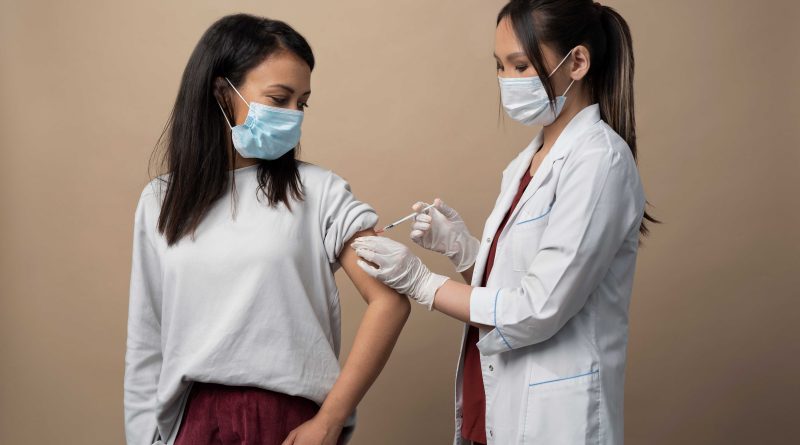Beyond the JAB
A landmark study has confirmed that COVID-19 vaccines considerably reduce the long-term health risks associated with SARS-CoV-2 infection. While there are some adverse effects like Guillain-Barré Syndrome and myocarditis, the overall benefits of vaccination are significant.
By Bhoomika M. Patel

A study conducted by scientists from the Centers for Disease Control and Prevention (CDC) in the United States and their partners provides a comprehensive overview of COVID-19 vaccination and its impact on health outcomes. Referencing Lam et al., “Persistence in Risk and Effect of COVID-19 Vaccination on Long-Term Health Consequences after SARS-CoV-2 Infection” (Nature Communications 2024:15, Article No. 1716), the research highlights the long-term health effects following SARS-CoV-2 infection and evaluates the effectiveness of vaccination in mitigating these effects.
Patients infected with SARS-CoV-2, the virus causing COVID-19, may face a range of health issues affecting multiple organs. These health problems can be acute (developing within 30 days of infection) or post-acute (persisting or developing beyond the initial 30 days). The term “Post-COVID-19 condition” encompasses these long-term complications.
Impact of Vaccination
The global initiative to develop and distribute vaccines was crucial in reducing the risk of COVID-19 infection, severity, and hospitalisation. Initially, a two-dose regimen of vaccines like BioNTech and CoronaVac was recommended. However, with the emergence of the Omicron variant, some countries introduced third and fourth booster doses to maintain immunity.
Study Design and Population
A comprehensive, retrospective study was conducted in Hong Kong, analysing a large cohort of 1,175,277 patients with COVID-19 and comparing them with non-infected controls. The study utilised a public healthcare database to track vaccination records and health outcomes.
Key Findings on Mortality and Health Risks
• Reduction in Mortality: Over one year, a progressive reduction in all-cause mortality was observed among COVID-19 patients compared to controls.
• Impact of Vaccination Status: Patients fully vaccinated or with booster doses had lower risks of major cardiovascular diseases and all-cause mortality within 30-90 days post-infection compared to unvaccinated or partially vaccinated patients.
• Long-Term Health Consequences: Fully vaccinated patients and those with booster doses did not show significant health risks beyond 91 and 271 days post-infection, respectively. Conversely, unvaccinated and partially vaccinated patients continued to face elevated risks for up to a year.
Real-World Evidence
The study provides strong real-world evidence supporting the effectiveness of COVID-19 vaccines in reducing long-term health risks associated with SARS-CoV-2 infection.
Adverse Effects of COVID-19 Vaccination
Guillain-Barré Syndrome (GBS)
•Description: Guillain-Barré Syndrome is a rare condition where the immune system attacks nerve cells, leading to muscle weakness and sometimes paralysis. It is more common in individuals aged 50 and above.
•Risk Analysis: Data from the Vaccine Safety Datalink (VSD) indicated that the risk of Guillain-Barré Syndrome was significantly higher (21 times within the first 21 days) after receiving the Johnson & Johnson/Janssen COVID-19 vaccine compared to the Pfizer-BioNTech or Moderna (messenger RNA) vaccines. This elevated risk persisted, though at a lower rate (11 times), for up to 42 days post-vaccination.
Myocarditis and Pericarditis
•Description: Myocarditis is the inflammation of the heart muscle, and pericarditis is the inflammation of the heart’s outer lining. Both conditions were rare but observed after COVID-19 vaccination.
•Patient Outcomes: Most cases occurred after receiving messenger RNA vaccines (Pfizer-BioNTech or Moderna). Affected patients generally responded well to treatment and rest, recovering quickly.
Evaluating the Benefits and Risks of mRNA COVID-19 Vaccination
Evidence to date indicates that the benefits of messenger RNA (mRNA) COVID-19 vaccines, such as those developed by Pfizer-BioNTech and Moderna, significantly outweigh the associated risks, including the risk of myocarditis. The CDC and the Food and Drug Administration (FDA) continue to monitor and evaluate reports of myocarditis and pericarditis following COVID-19 vaccination to ensure public safety.
Myocarditis and Pericarditis
•Incidence and Demographics: Data from the Vaccine Safety Datalink (VSD) and the Vaccine Adverse Event Reporting System (VAERS) show that the highest rates of myocarditis after COVID-19 vaccination occur among males in their late teens and early twenties. These cases typically arise after the second dose of the vaccine.
•Clinical Considerations: Myocarditis, an inflammation of the heart muscle, and pericarditis, an inflammation of the outer lining of the heart, are generally rare but have been observed post-vaccination. Most patients respond well to treatment and rest, recovering quickly.
Thrombosis with Thrombocytopenia Syndrome (TTS)
•Incidence and Risk: Thrombosis with thrombocytopenia syndrome (TTS) has been rarely observed following the Johnson & Johnson/Janssen COVID-19 vaccination, occurring in about four cases per million doses administered. TTS is a severe condition that causes blood clots in large blood vessels and low platelet levels.
•Regulatory Response: A review of reports established a causal relationship between the J&J/Janssen vaccine and TTS, leading to the Advisory Committee on Immunisation Practices (ACIP) recommending the preferential use of mRNA vaccines over the J&J/Janssen vaccine. Consequently, the J&J/Janssen vaccine is no longer available in the US. The CDC has provided detailed information on TTS cases to healthcare providers and the public to ensure informed decision-making.
Anaphylaxis
•Incidence and Management: Anaphylaxis, a severe allergic reaction, has been reported at a rate of about five cases per million COVID-19 vaccine doses administered. While rare, anaphylaxis can occur after any vaccination. Healthcare providers are trained to promptly and effectively treat this reaction.
Other Rare Side Effects
•Acute Disseminated Encephalomyelitis and Transverse: An Australian study found the risk of acute disseminated encephalomyelitis (a rare, inflammatory condition affecting the brain and spinal cord, often following an infection or vaccination) to be extremely low, at 0.78 cases per million doses, and transverse myelitis (an inflammatory disorder causing damage to the spinal cord, leading to symptoms such as muscle weakness and paralysis) at 1.82 cases per million doses.
Expert Insights
Nigel Buttery, a senior research analyst with the Murdoch Children’s Research Institute in Australia, noted that rare side effects often become apparent only after a vaccine has been administered to millions of people. This is because clinical trials are not large enough to detect such rare events.
Overall, the comprehensive monitoring and evaluation by health authorities like the CDC and FDA ensure that the benefits of COVID-19 vaccination are clearly communicated and outweigh the risks. Ongoing studies and reviews provide critical information to healthcare providers and the public, supporting informed decision-making and maintaining public health safety.
(The author is Associate Dean at the School of Medicolegal Sciences, National Forensic Science University, Gandhinagar)

